*NURSING > QUESTIONS & ANSWERS > Transitions Chapter 2: Professional Ethics and Values—Answers and Rationales (All)
Transitions Chapter 2: Professional Ethics and Values—Answers and Rationales
Document Content and Description Below
1. Which of the following best describes the ethical concept of values? A. Values are an individual's feelings about situations. B. Values are learned through family systems. C. Values are organize... d ways of thinking about the meaning of life. D. Values determine the rightness or wrongness of behavior. A Page: 15 Feedback A. This is correct. Values are how individuals feel about ideas, situations, and concepts. B. This is incorrect. Morals, springing from an individual's conscience, are learned through family systems, instruction, and socialization. C. This is incorrect. Belief systems are organized ways of thinking about why people exist. D. This is incorrect. Ethics deal with the rightness or wrongness of human behavior. 2. Which of the following best describes intrinsic values? A. Intrinsic values are often abstract ideas. B. Intrinsic values are basic needs for sustaining life. C. Intrinsic values are qualities patients consider to be important in their private lives. D. Intrinsic values are qualities patients consider important for nurses to have. B Page: 15 Feedback A. This is incorrect. Extrinsic values are not essential to sustaining life and may include physical or abstract objects or meanings. B. This is correct. Intrinsic values are related to sustaining life, such as food and water. C. This is incorrect. Personal values are qualities people consider important in their private lives. D. This is incorrect. Professional values are qualities a professional group consider to be important. 3. Values are learned through which of the following methods? A. Reading books B. Formal degrees C. Continuous reinforcement D. Meeting diverse individuals C Page: 16 Feedback A. This is incorrect. Values can be taught directly through societal norms, not through reading books. B. This is incorrect. Values can be taught directly though modeling behavior, not through formal degrees. C. This is correct. Children learn values through continuous reinforcement by watching their parents, friends, teachers, and religious leaders. D. This is incorrect. Values are learned through continuous reinforcement, and not through meeting diverse individuals. 4. Which of the following statements about ethical principles and laws is true? A. The government holds the power to enforce ethics. B. Laws provide standards that assist in decision making. C. Ethics are very specific. D. As a standard for measuring actions, ethical principles may be the basis for laws. D Page: 18 Feedback A. This is incorrect. The government holds the power to enforce laws. B. This is incorrect. Ethics provide standards for measuring actions, and therefore assist in decision making. C. This is incorrect. Laws are more specific than ethics. D. This is correct. Ethical principles are a standard for measuring actions. They may form the basis for laws, but are not laws themselves. 5. A registered nurse (RN) is caring for a patient who is one of Jehovah's Witnesses and has refused a blood transfusion even though her hemoglobin is dangerously low. After providing information about all the alternatives available and risks and benefits of each, the health-care provider allows the patient to determine which course of treatment she would prefer. The RN knows this is an example of which ethical principle? A. Autonomy B. Nonmaleficence C. Beneficence D. Distributive justice A Page: 19 Feedback A. This is correct. Autonomy is an individual's right to make his or her own decisions. B. This is incorrect. Nonmaleficence is the responsibility of the nurse to do no harm either intentionally or unintentionally and to protect those who cannot protect themselves. C. This is incorrect. Beneficence is the principle of doing good to others. D. This is incorrect. Distributive justice is the responsibility to fairly allocate scarce resources regardless of gender, sexual orientation, religion, ethnicity, disease, social standing, or any other criteria. 6. An RN cared for a state senator during the day shift. Later that day he was having dinner with friends when the news mentioned the senator had been hospitalized. The RN's friends asked if he knew what was wrong with the senator. Which ethical principle should the RN consider when replying? A. Fidelity B. Confidentiality C. Veracity D. Accountability B Page: 21 Feedback A. This is incorrect. The principle of fidelity requires nurses to fulfill all commitments they make and all responsibilities of professional practice. B. This is correct. The principle of confidentiality requires nurses to hold health-care information and anything patients tell them in the strictest confidence. C. This is incorrect. The principle of veracity requires nurses to be truthful. D. This is incorrect. The principle of accountability requires nurses to accept responsibility for their own answers. 7. When considering virtue ethics, which of the following is true? A. Virtue ethics attributes behaviors to moral rules. B. Virtue ethics attributes behaviors to knowledge of consequences. C. Virtue ethics focuses on moral character, rather than rules for behavior. D. Virtue ethics is a formal statement of rules for behavior. C Page: 23 Feedback A. This is incorrect. Deontology attributes behaviors to moral rules and duties. B. This is incorrect. Teleological theories derive rules for behavior from the consequences of the action. C. This is correct. Virtue ethics focuses on qualities and moral character rather than rules or duties. D. This is incorrect. A code of ethics is a formal statement of rules for ethical behavior. [Show More]
Last updated: 2 years ago
Preview 1 out of 8 pages
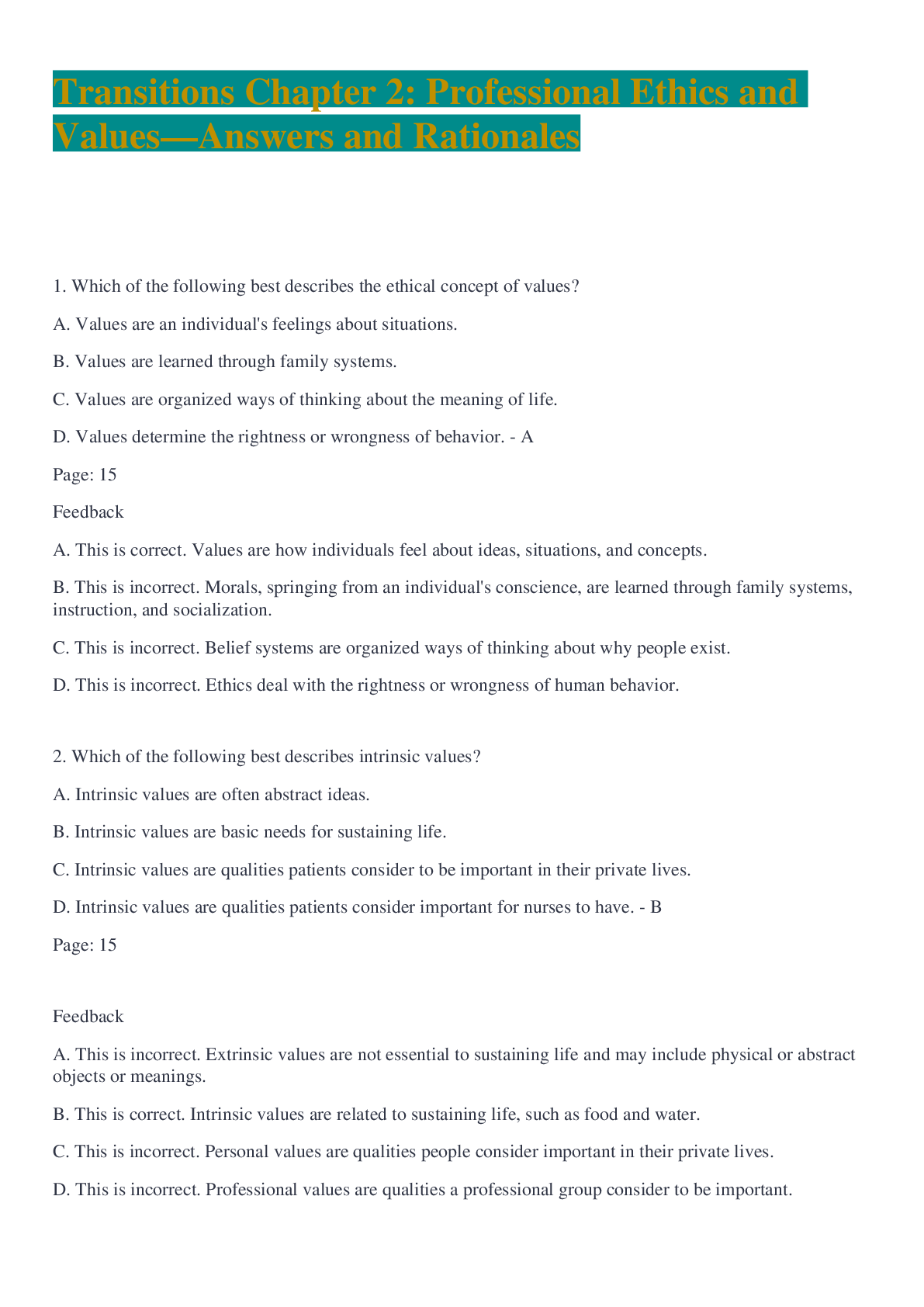
Buy this document to get the full access instantly
Instant Download Access after purchase
Buy NowInstant download
We Accept:

Reviews( 0 )
$7.00
Can't find what you want? Try our AI powered Search
Document information
Connected school, study & course
About the document
Uploaded On
Sep 16, 2022
Number of pages
8
Written in
Additional information
This document has been written for:
Uploaded
Sep 16, 2022
Downloads
0
Views
46

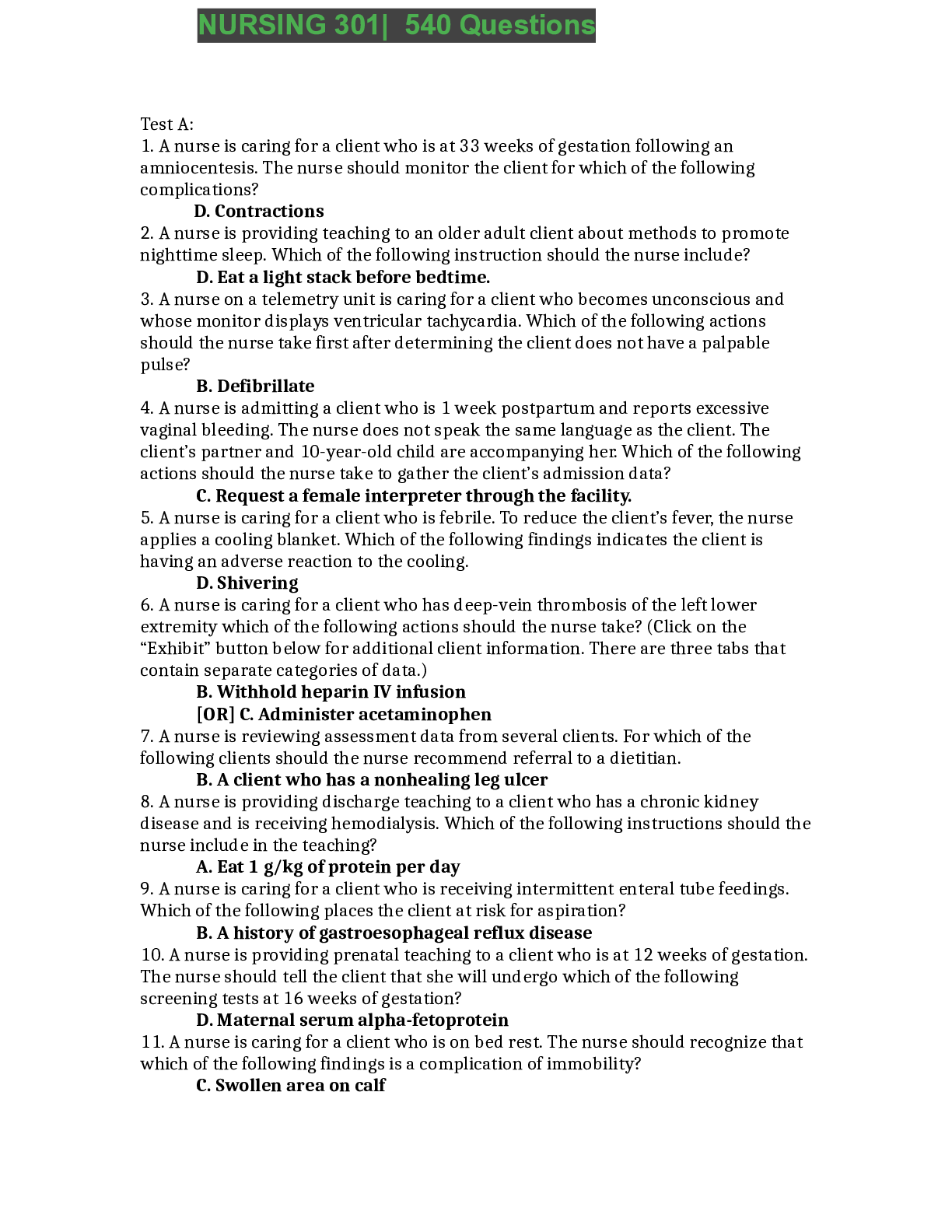

.png)
 (1).png)
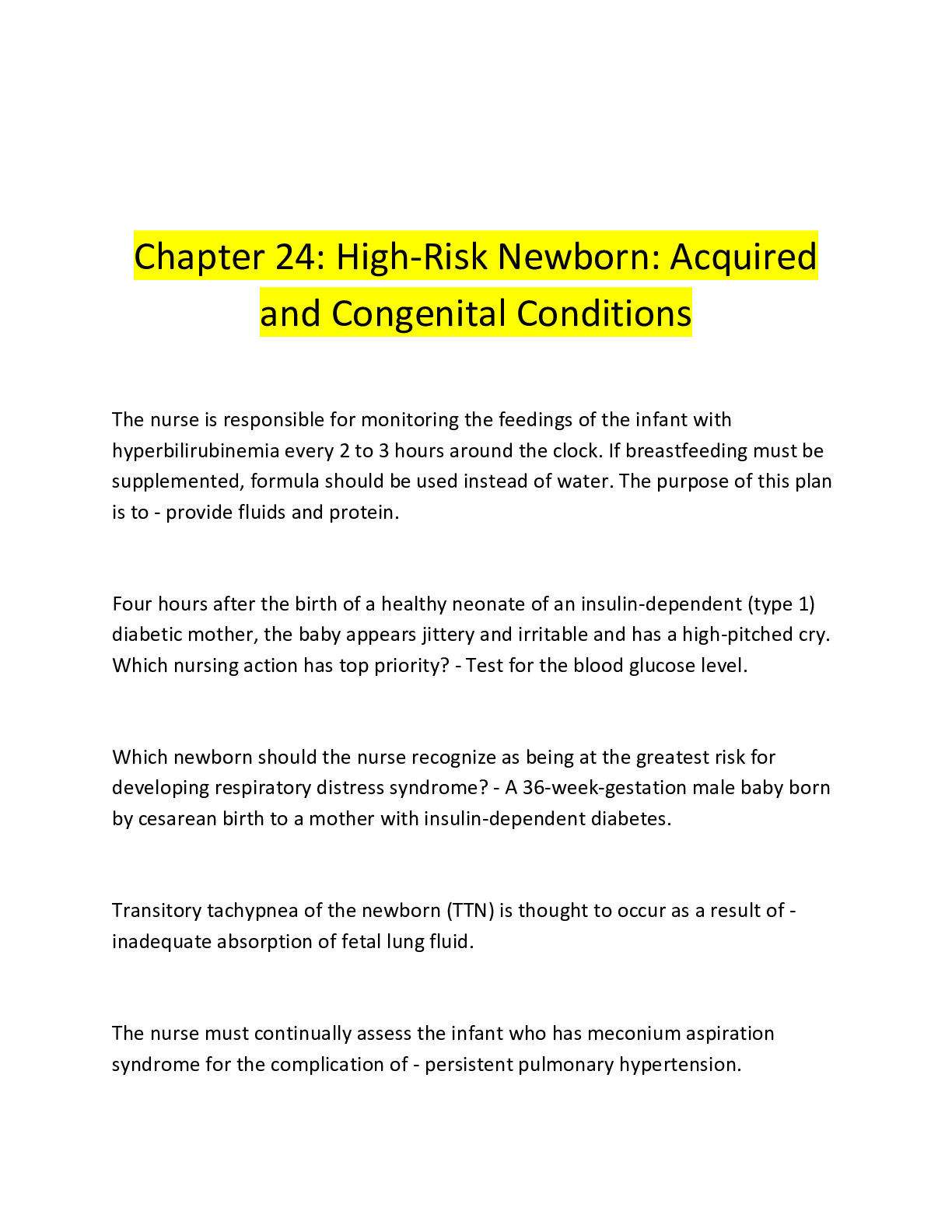

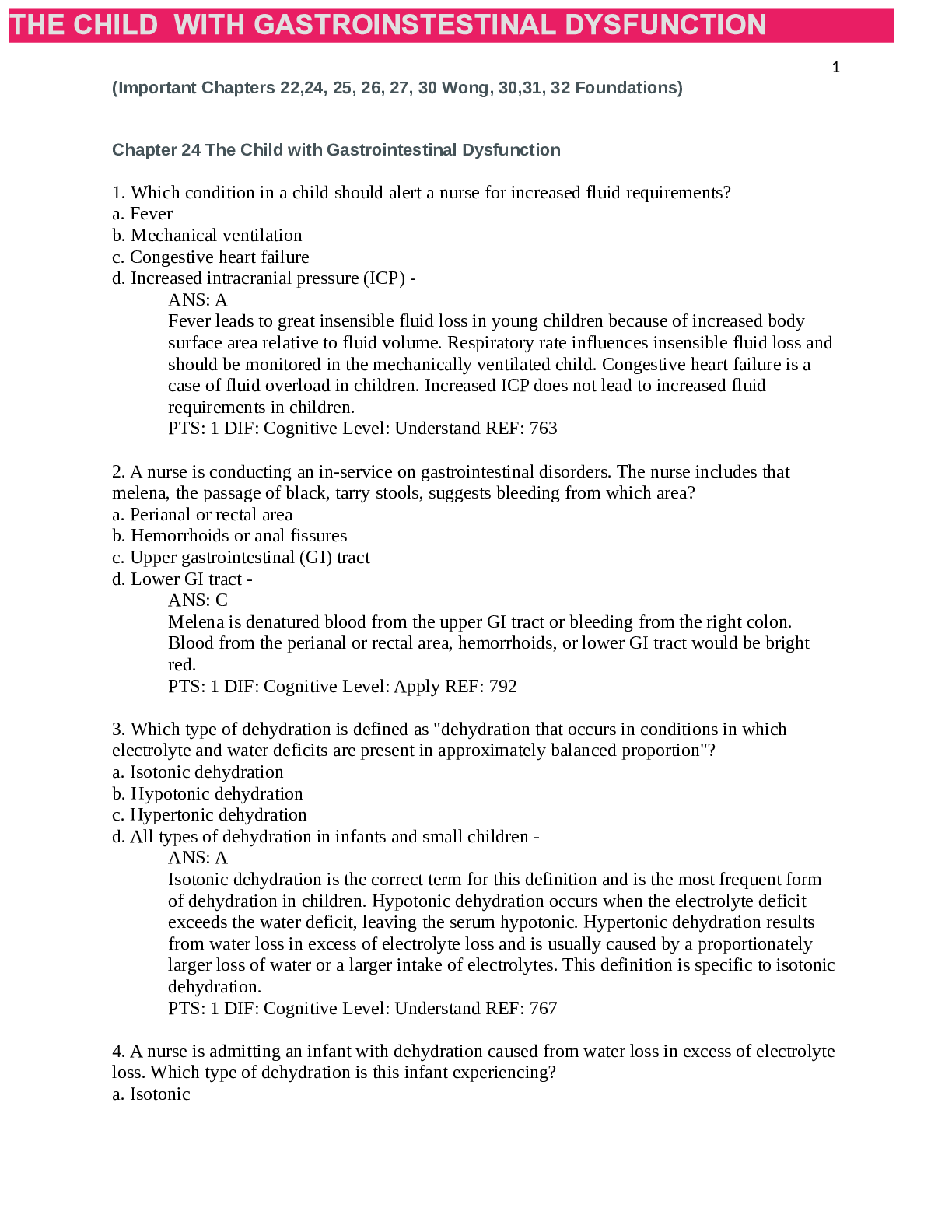
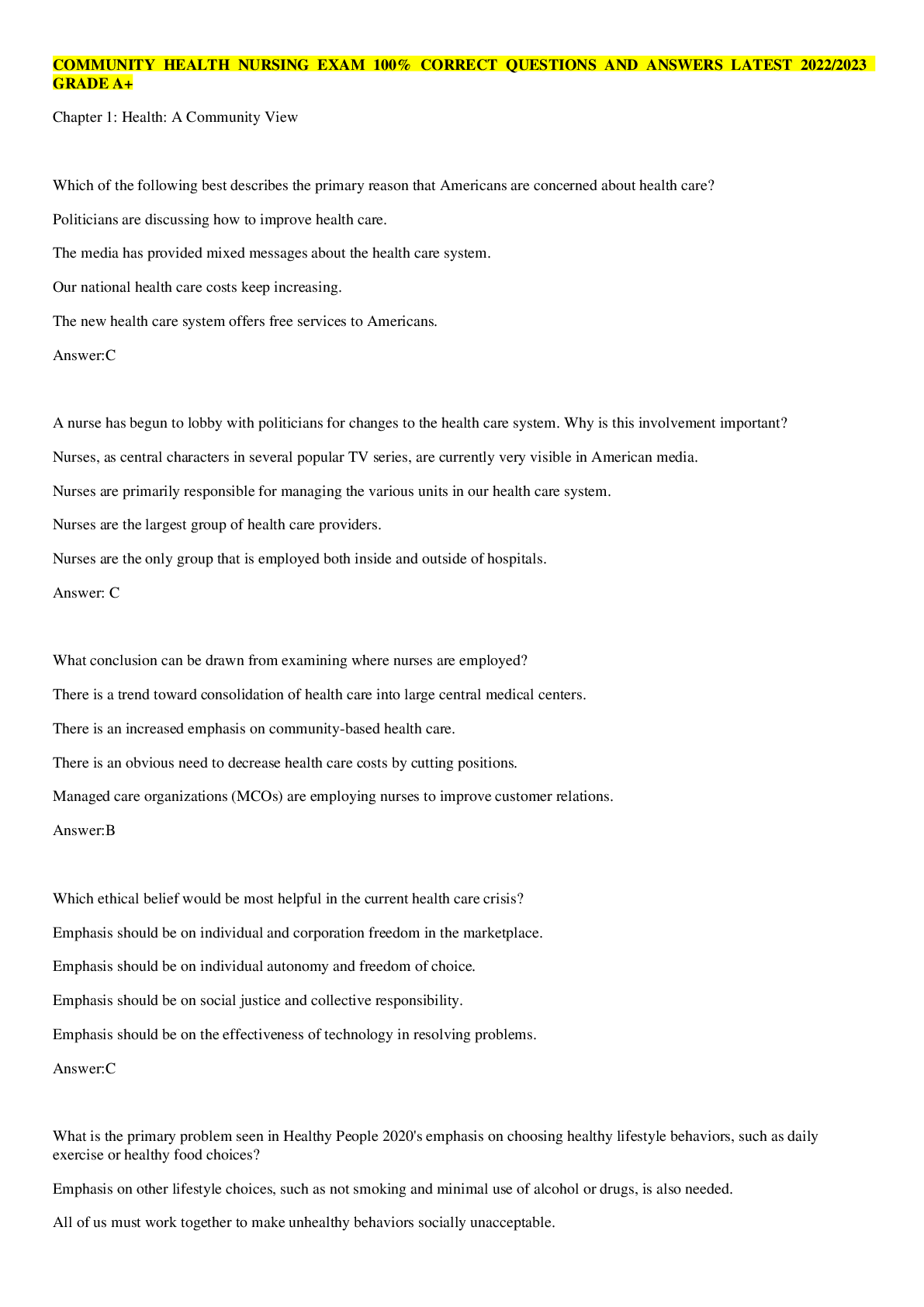


 (1).png)


